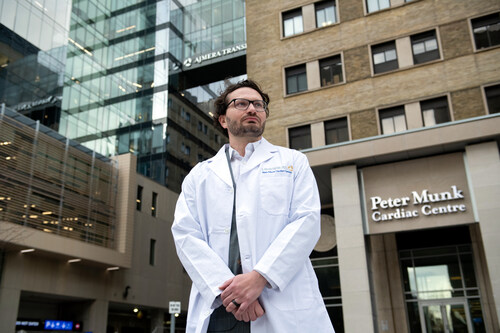**Historic First in Canada: Successful Heart Transplant Using Donation After Circulatory Death**
In a groundbreaking medical achievement, surgeons at Toronto’s University Health Network (UHN) have successfully completed a heart transplant using a donor whose heart had stopped beating. This innovative technique, known as donation after circulatory death (DCD), marks a significant milestone for Canada’s organ transplant landscape.
Unlike traditional heart transplants that rely on organs from brain-dead donors whose hearts continue to beat, the DCD approach recovers hearts after life support is withdrawn and the heart has stopped beating. This expands the donor pool and offers new hope for patients on transplant waiting lists.
In early September, a team at UHN’s Toronto General Hospital performed the novel transplant. Dr. Ali Rabi, the cardiac surgeon at UHN’s Peter Munk Cardiac Centre who led the surgery, explained the significance of the procedure:
“Before, we only used hearts from brain-dead donors whose hearts were still beating. Now, we can use hearts that have stopped beating after life support is withdrawn. These are donors who are not considered brain dead. They have a few basic reflexes but no prospect of recovery. That decision is made by the patient, their family, their treatment team, and a neurology team. The family then decides they do not want their loved one to continue like this.”
Heart failure remains one of the most common causes of hospital admission and death in Canada. According to the Canadian Institute for Health Information, by the end of 2024, there were 155 adults and 29 children waiting for a heart transplant. Dr. Rabi highlighted the impact of this new technique:
“Because of this surgery, we increase the number of heart transplants by 20 to 40 per cent. This will also reduce the number of people who never receive a heart transplant and die waiting for one.”
This technique is not entirely new globally—it has been successfully used in countries including Australia, the U.K., and the United States. In Canada, it is expected to increase heart transplants by approximately 30 percent. A representative shared the emotional impact of seeing the new heart beating:
“When the heart started beating again in the new patient, it’s amazing. The heart’s natural strength is incredible. This breakthrough shows how innovation can save more lives. Congratulations to UHN for this historic milestone.”
Dr. Rabi also acknowledged the profound generosity of donor families:
“It’s the hardest day of their lives, but many find comfort knowing their loved one helped save others.”
Recent data from Australia and the U.S. indicate no difference in long-term survival between recipients of DCD hearts and those receiving organs from traditional brain-dead donors. Dr. Rabi is optimistic about the future of heart transplantation:
“I encourage young people who are interested in heart failure and heart transplant to look at the field, and I guarantee you in the next five years, the field will be completely unrecognizable.”
This landmark surgery not only expands opportunities for patients in need but also represents a hopeful leap forward in cardiac care and transplant innovation in Canada.
https://globalnews.ca/news/11469587/toronto-heart-transplant/

Be First to Comment